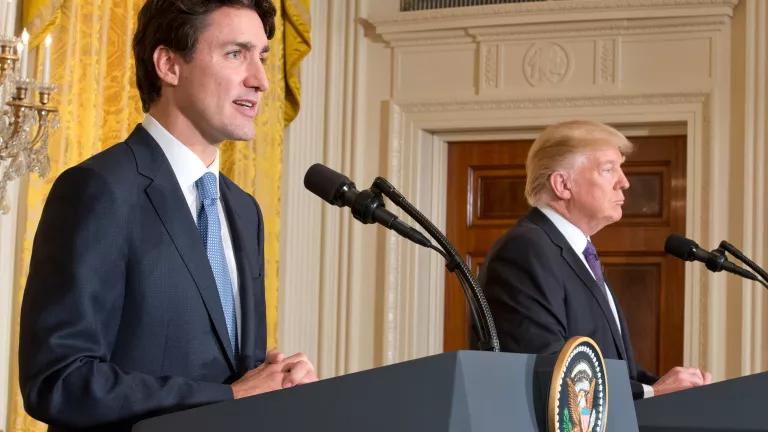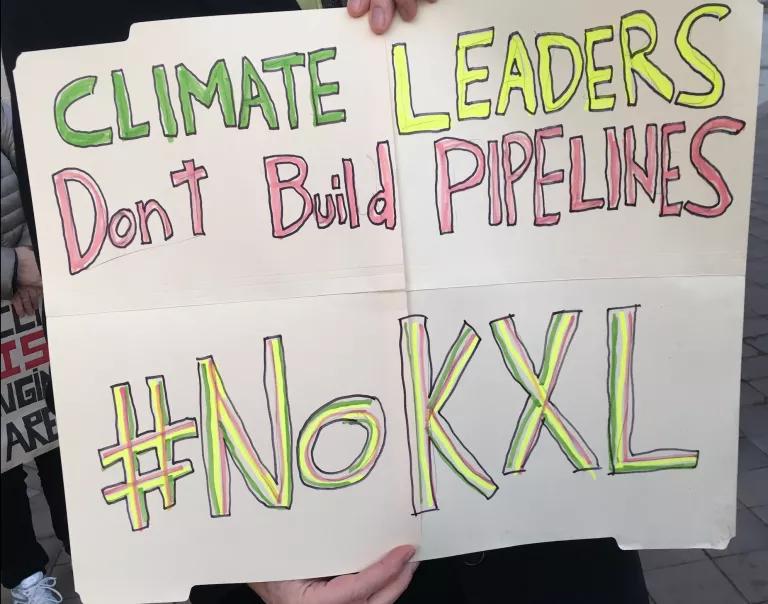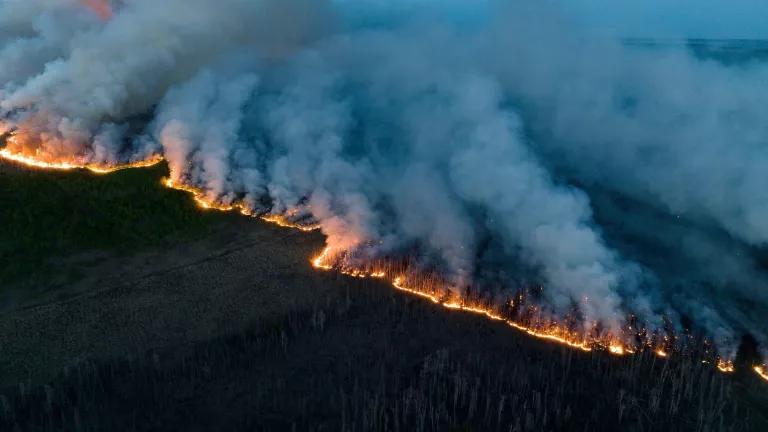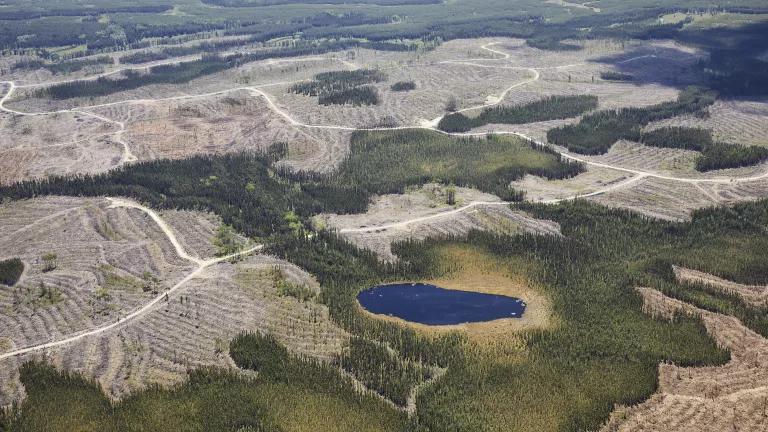O Canada! We Need Your Climate Leadership
We need a good neighbor more than ever right now—for the sake of both our countries.

President Donald Trump and Prime Minister Justin Trudeau of Canada conduct a joint press conference, February 13, 2017.
Ron Sachs/CNP/Polaris via Newscom
Today’s meeting between Canadian Prime Minister Trudeau and President Trump highlights how much we need Canada’s climate leadership in the days to come. The Trump government has already invited a reapplication for the Keystone XL tar sands pipeline. He is considering pulling out of the Paris climate agreement, undermining the Clean Power Plan, and slowing our clean energy advances. This is the time for Canada to lead internationally on climate action. It is a time for Canadian provinces and cities to continue to build strong partnerships with the U.S. states and cities that are likewise continuing to move ahead with clean energy. And it is a time where Canada needs, once and for all, to take a strong stance against the expansion of the carbon-intensive tar sands industry, which remains the single largest challenge Canada faces in cutting its carbon pollution.
Trudeau has repeatedly pledged that Canada will take up the mantle of leadership in the global fight to stop the worst effects of climate change. That means moving ahead with clean energy commitments such as strong auto efficiency and appliance standards and regulation of methane emissions. It means staying true to the Paris climate agreement and urging the Trump government to do the same. And it means stopping expansion of tar sands, by such means as withdrawing its support for new tar sands pipelines, infrastructure that would lock in harmful carbon pollution for decades to come.
The press conference after today’s meeting was notable in its absence of its discussion of climate change. And it was worrying in its emphasis on energy infrastructure. An energy infrastructure that supports a clean energy system for both our countries is a good thing. But Trump seems to be focused on an infrastructure of fossil fuel pipelines that would undermine both of our countries’ climate and clean energy progress.
The Canadian government recently approved two new tar sands pipelines and expressed support for President Trump’s revival of the Keystone XL tar sands pipeline. But the math here is simple: Canada cannot build these new pipelines and meet its international climate commitments. These three new lines would enable the tar sands industry to almost double in size, dramatically increasing carbon emissions—a reality that is completely at odds with the kind of tough choices countries seeking to lead on climate policy must make to curb the threat climate change poses to our communities, economies, and planet.

NRDC
Climate leaders don’t build new pipelines. What they do build is relationships that push forward the major commitments that North American leaders made last fall to expand clean energy production, commitments that can make the continent a global leader in innovation and production of clean energy. American states and cities are continuing to advance clean energy despite the Trump administration’s actions. Many American businesses remain committed to clean energy. This is where Canada can find the climate and clean energy partnerships that will set our two countries up to become energy superpowers through a focus on clean, and not dirty, energy. Dirty energy projects like the Keystone XL tar sands pipeline can try to come back from the dead, but they face fierce opposition and significant obstacles.
The benefits to the U.S. and Canada for following through on these commitments are clear: Today, more than three million Americans and Canadians earn their paychecks from the clean energy industry, and this number continues to grow.
Canadian climate leadership will be found in reinforcing signals from other countries that there will be repercussions for the Trump administration if America withdraws from the Paris climate agreement. A good neighbor acts in a way that is best in the long term for both our countries. That means strong climate leadership at home and internationally.




